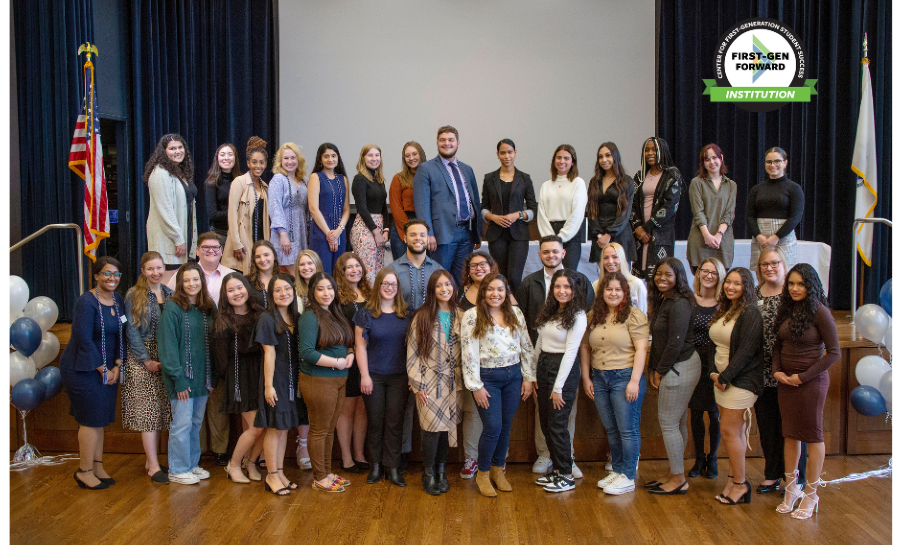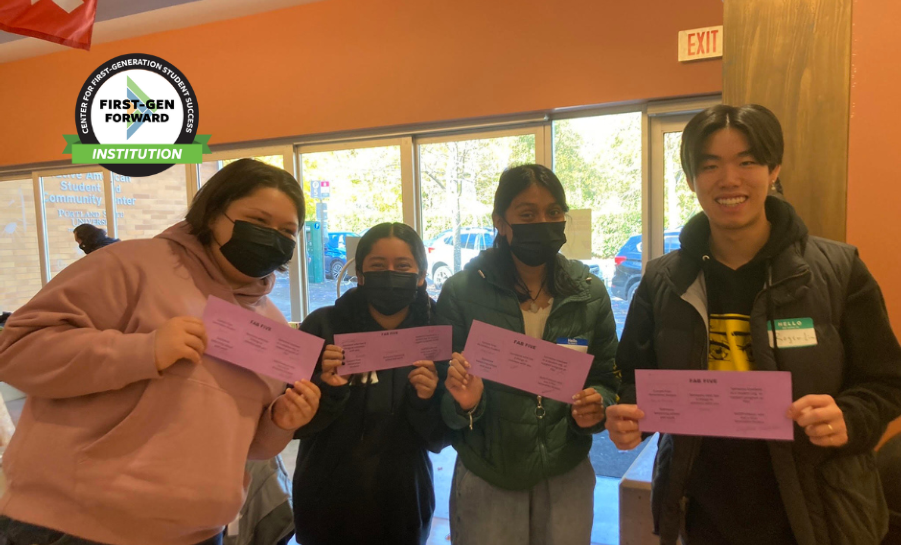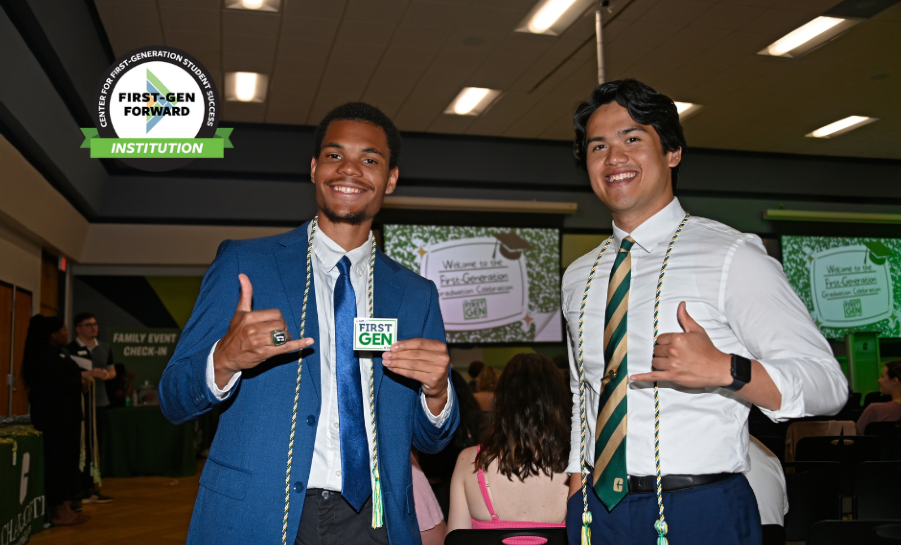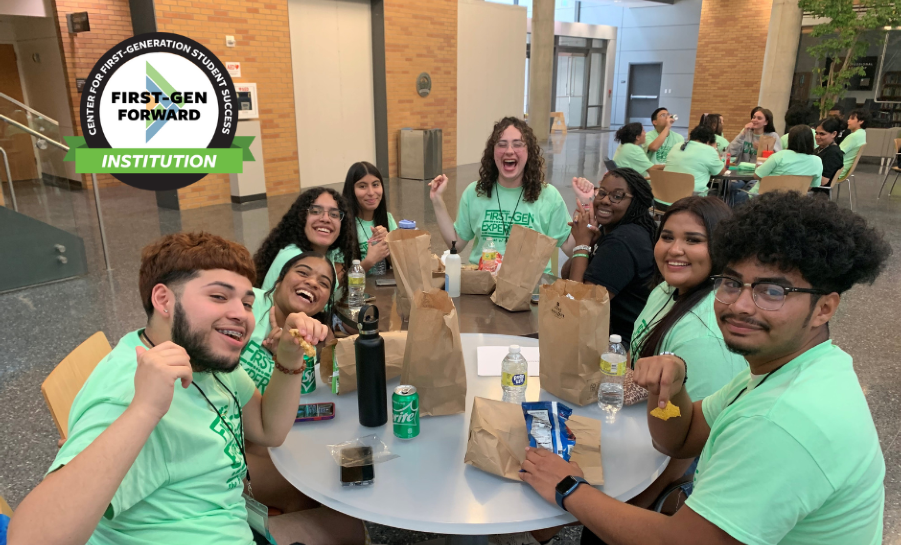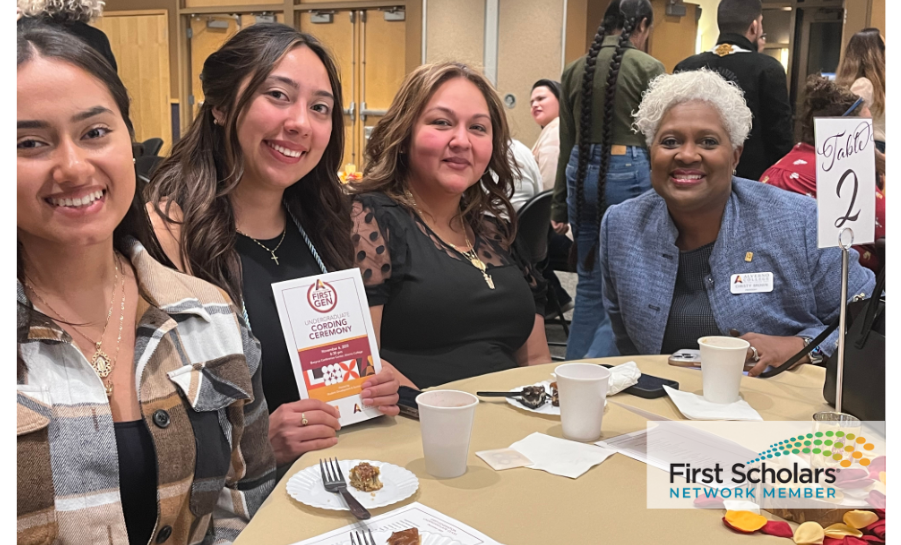Higher Education and You: A Seminar for First-Gen, First-Year Students
Kristin Sweeney, Keene State College / FirstGen Forward / October 26, 2022
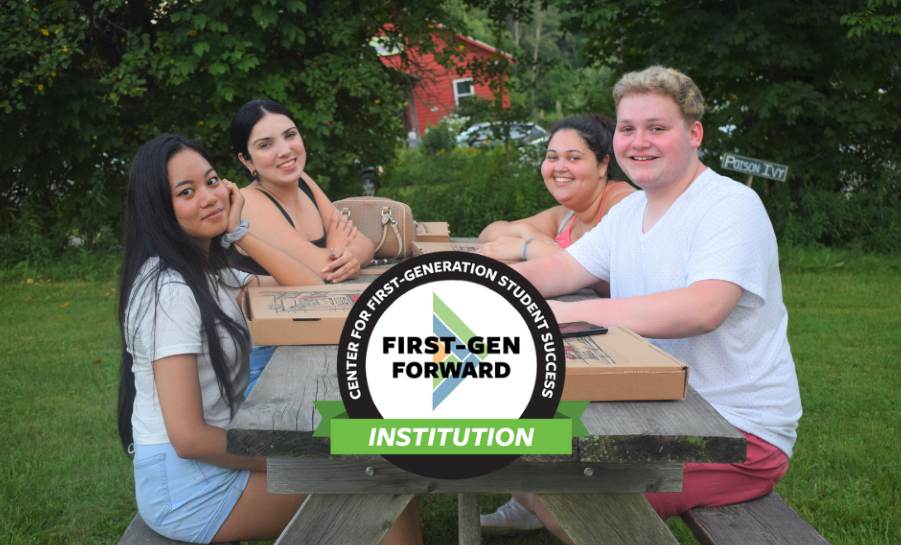
The transition from high school to college is one of the most significant changes first-year students have faced in their lives. Higher academic expectations, support systems that are decidedly different than they were in high school, and the need to be more self-sufficient while recognizing that interdependence is necessary for success, are just some of the challenges facing incoming students. These challenges are further magnified for first-generation and low-income students - a growing population at Keene State College, a small, public, liberal arts college in southwestern New Hampshire.
To help students make a successful transition, Keene State College currently has a 1-credit first-year seminar course (FYS) for entering students. As an alternative to FYS, the TRIO Student Support Services program on campus (known locally as Aspire) offers a 2-credit seminar designed specifically to support first-year students who will be the first in their families to complete a bachelor’s degree. The seminar, developed in 2015, is titled Higher Education and You (HEY) and explores the higher education system and the ways in which students interact with it based on various aspects of their identity. Students gain knowledge of the structure and expectations of college, and practice critical thinking skills to analyze, evaluate, and implement plans for academic success. The course utilizes two texts, which are provided at no cost to students. The first text, Tara Westover’s Educated: A Memoir, addresses student identity development as it relates to underrepresented TRIO eligible populations. The second, Matthew Sanders’ Becoming a Learner: Realizing the Opportunity of Education, challenges students to develop the critical thinking skills required for academic success at a liberal arts college.
The seminar, developed in 2015, is titled Higher Education and You (HEY) and explores the higher education system and the ways in which students interact with it based on various aspects of their identity.
The goals of the course are:
• to assist students’ transition to Keene State College on a number of different levels;
• to teach students about identity development, as well as a variety of identity development theories;
• to demonstrate how these theories are connected to their own growth and maturation;
• to expose students to the skills required to be a successful college student; and
• to practice the different success strategies mentioned above.
Participation in HEY is by invitation and application. Each spring, Aspire outreaches to new incoming first-year students who are first-generation, inviting them to apply to participate in the class. The Aspire team reviews applicants and establishes a class cohort. Accepted students arrive to campus four days earlier than their first-year peers. During this time, the class includes morning, afternoon, and evening activities.
DAY ONE
• move and settle into residential space
• team building activities
• course overview
• Aspire info session
• dinner
• themed movie
DAY TWO
• overview of higher education & academic expectations
• course syllabus & schedule
• skill building (text book reading, note taking & time management)
• keynote speaker emphasizing transforming dreams into realities
DAY THREE
• class community service project
• individual student meetings w/advisor
• student needs assessments
• goal setting workshop
• a walking tour of downtown
DAY FOUR
• review development theory
• review textbook reading assignments
• join first-year student orientation
The class continues Friday afternoons through October. The course provides a primer of needed non-cognitive skills and delves into identity and background as it influences college experiences. Students explore how various aspects of their identity influence their college experience. An examination of the construction of the educational system is provided for context for students to make sense of their educational and personal experiences. With this context, students engage in critical thinking and analysis as a vehicle for understanding the nature of the higher education environment. The course design provides an opportunity to practice critical skills such as self-advocacy, public speaking, time management, as well as individual and group work. Students are evaluated on weekly assignments and papers, class participation, attendance, and an end of semester oral presentation and project.
The course design provides an opportunity to practice critical skills such as self-advocacy, public speaking, time management, as well as individual and group work.
The University System of New Hampshire’s Office of Institutional Research and Assessment conducted a First Year Seminar Study in August of 2022, including HEY in that analysis. From 2017 to 2021, one section of HEY was offered each fall, enrolling a total of 63 TRIO students. In that same time period, multiple sections of FYS enrolled 1,469 students.
Highlights from the study as it relates to the TRIO students in HEY include:
• 70% were female
• 17% were students of color
• 60% were in-state residents
• 95% were first-generation college
• 95% were Pell grant recipients
• 90% were first-generation college and Pell grant recipients
The average high school GPA of the HEY students was 3.04 as compared to 3.14 for the students enrolled in FYS. At the end of the first spring semester, the HEY students average cumulative GPA was 3.05, while the FYS students was 2.9. The first to second fall retention of the HEY students was 81%, while the FYS students was 78%.
Another analysis was conducted identifying a cohort of first-generation college and Pell grant recipients who had not participated in HEY or FYS. The HEY students earned a 3.05 cumulative first spring GPA, while the non-participating first-generation and Pell recipients earned a 2.57. The second fall retention rate for HEY students was 81% while the rate for non-participating first-generation and Pell grant recipients was 64%.
First-generation students enrolled in HEY are a small representation however, compared to dual first-generation and Pell grant recipients who did not take any FYS, students who completed HEY had a higher first spring cumulative GPA and second fall retention rate, indicating the success of the HEY model. It should be noted that HEY is coordinated as part of the Aspire program and, as such, benefits from resources associated with that initiative. While the HEY model is small, it is scalable as more sections could be offered. It also has the potential to be replicated for other student populations.
